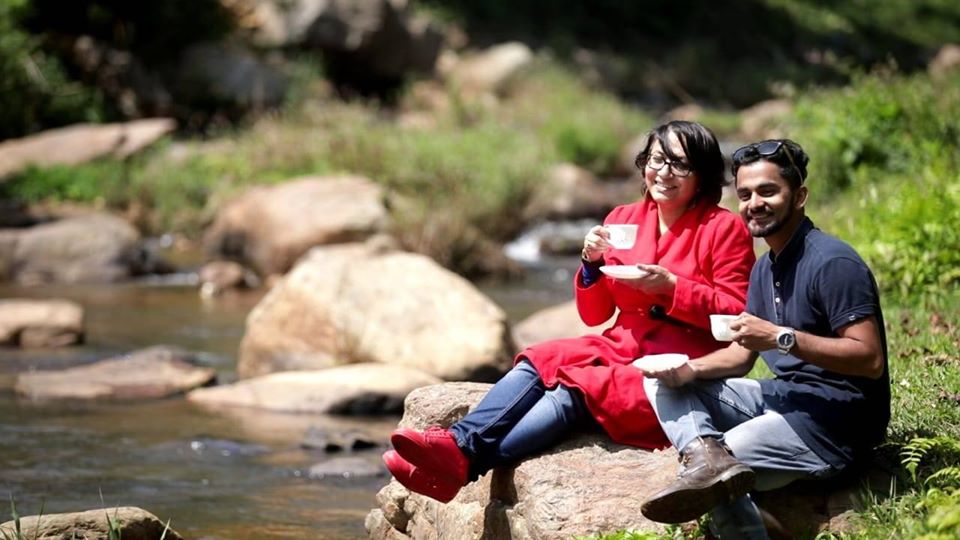Can drinking tea help you to fight Corona Virus?
The simple answer is “No.”
However, there is a complex answer as well 🙂
But before we proceed, let’s just take a moment to understand Corona Virus and how it works.
“Corona Virus (Cov) infect variety of organs including the liver, respiratory and enteric tracts and the central nervous system. The resulting disease phenotypes (a phenotype would be any observable characteristic or trait of a disease, such as morphology, development, biochemical or physiological properties, or behavior, without any implication of a mechanism. A clinical phenotype would be the presentation of a disease in a given individual) comprise a vast spectrum ranging from acute life threatening disease to chronic inapparent infections. Host genetic background and age in addition to the specific virus and root of entry contribute to disease severity. Viral cellular and tissue tropism affects both the quality and quantity of immune response which automatically determine viral control and pathogenesis. (the manner of development of a disease).” (the full report: https://www.asmscience.org/content/book/10.1128/9781555815790.ch22 )
Three immunologists —Timothy Craig, a professor of medicine and pediatrics in allergy and immunology at Penn State Health Milton S. Hershey Medical Center; Cathryn Nagler, a mucosal immunologist at the University of Chicago and distinguished fellow of the American Association of Immunologists, and John Wherry, director of the Institute of Immunology at Penn Medicine — said there’s no strong evidence that any herb or supplement, including vitamin C, will prevent coronavirus. Like drinking water, taking most of them probably won’t hurt you, but also won’t help. Probiotics also won’t save you. Colloidal silver can be harmful.
So, since our immune system is all we have between us and the ICU as this virus spreads, are there ways we can make it work better?
This is where tea comes in.
A study conducted in 2003 had found that tea boosts the body’s defenses against infection and contains a substance that might be turned into a drug to protect against disease. Coffee does not have the same effect.
A component in tea was found in laboratory experiments to prime the immune system to attack invading bacteria, viruses and fungi, according to a study in the Proceedings of the National Academy of Sciences.
A second experiment, using human volunteers, showed that immune system blood cells from tea drinkers responded five times faster to germs than did the blood cells of coffee drinkers.
“We worked out the molecular aspects of this tea component in the test tube and then tested it on a small number of people to see if it actually worked in human beings,” said Dr. Jack F. Bukowski, a researcher at Brigham and Women’s Hospital in Boston and Harvard Medical School. The results, he said, gave clear proof that five cups of tea a day sharpened the body’s disease defenses.
In the study, Bukowski and his co-authors isolated from ordinary black tea a substance called L-theanine.
Bukowski said L-theanine is broken down in the liver to ethylamine, a molecule that primes the response of an immune system element called the gamma-delta T cell.
“We know from other studies that these gamma-delta T cells in the blood are the first line of defense against many types of bacteria, viral, fungal and parasitic infections,” he said. “They even have some anti-tumor activity.”
The T cells prompt the secretion of interferon, a key part of the body’s chemical defense against infection, Bukowski said.
“We know from mouse studies that if you boost this part of the immune system it can protect against infection,” he said.
To further test the finding, the researchers had 11 volunteers drink five cups a day of tea, and 10 others drink coffee. Before the test began, they drew blood samples from all 21 test subjects.
After four weeks, they took more blood from the tea drinkers and then exposed that blood to the bacteria called E-coli. Bukowski said the immune cells in the specimens secreted five times more interferon than did blood cells from the same subjects before the weeks of tea drinking. Blood tests and bacteria challenges showed there was no change in the interferon levels of the coffee drinkers, he said.
Bukowski said it may be possible to further isolate and refine L-theanine from tea and use that as a drug to boost the infection defense of the body.
(The health effects of tea have been extensively studied. So far, it has been linked to lower heart disease and cancer risk through the action of flavonoids, a type of antioxidant. Other studies have linked tea to helping combat osteoporosis, the brittle bone disease, and to relieving some allergy symptoms.)
So, Tea contributes considerably in building your immune system, which in return helps you to fight various diseases better.
What do you think?

Source: Proceedings of the National Academy of Sciences: https://www.pnas.org/content/100/10/6009
